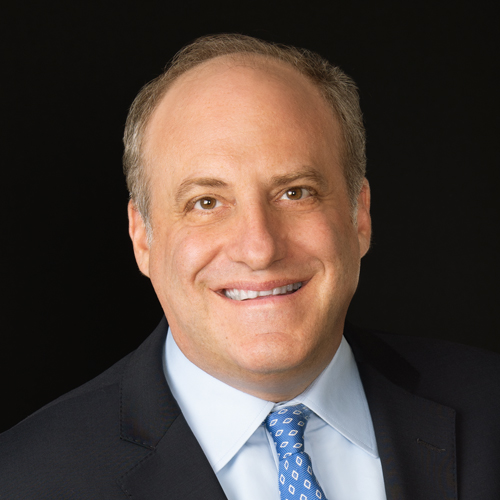Over the last year, we have paid close attention to the increasingly complicated and evolving landscape companies are facing in light of changing government enforcement priorities, including the Department of Justice’s (DOJ’s) focus on tariff compliance and its pilot program to reward whistleblowers who report corporate wrongdoing to the government.
In May, DOJ took two notable actions. First, it outlined 10 priorities for criminal enforcement, including prosecutions for trade and customs fraud, healthcare fraud, bribery and violations of the Federal Food, Drug, and Cosmetic Act (FDCA). Second, it announced revisions to the Whistleblower Awards Pilot Program (Whistleblower Program) and the Corporate Enforcement and Voluntary Self-Disclosure Policy (CEP) – expanding the benefits available for whistleblowers and giving companies an even greater incentive to self-report misconduct to the government.
These developments reinforce that DOJ is continuing to focus resources on corporate misconduct – and companies, accordingly, should evaluate and consider strengthening internal reporting systems and ensure diligence of third-party suppliers and manufacturers, specifically for compliance with trade laws.
DOJ announcement: 10 ‘high-impact’ areas of focus, including tariff evasion
On May 12, Matthew Galeotti, head of DOJ’s Criminal Division, sent a memorandum that reflects changes in DOJ’s enforcement priorities. Galeotti listed 10 “high-impact” areas of focus, which included “[t]rade and customs fraud, including tariff evasion.” He said, “[t]rade and customs fraudsters” were “undermin[ing] the Administration’s efforts to create jobs and increase investment in the United States.” He placed tariff evasion as a necessary focus for DOJ because it is a “threat[] to the U.S. economy, American competitiveness, and our national security.”
The nine other areas of focus are:
- Healthcare and procurement fraud.
- Violations of the Controlled Substances Act and FDCA.
- Fraud by variable interest entities, which Galeotti described as “typically Chinese-affiliated companies listed on U.S. exchanges that carry significant risks to the investing public.”
- “Fraud that victimizes U.S. investors,” including “Ponzi schemes, investment fraud, elder fraud, servicemember fraud” and consumer safety fraud.
- Conduct that threatens US national security, such as sanctions violations.
- Material support to foreign terrorist organizations.
- Complex money laundering.
- Bribery and associated money laundering.
- Crimes that involve digital assets.
We previously discussed several of these enforcement areas. In this April post, we wrote that DOJ, “in conjunction with the Department of Homeland Security (DHS), is expected to use criminal statutes – such as conspiracy, smuggling and wire fraud – to investigate and charge companies and individuals for alleged trade violations.” Additionally, we noted that, “DOJ has made clear that it also intends to aggressively pursue civil remedies against tariff evasions through the False Claims Act (FCA), which allows the government to recover money it is owed.”
In April, we also covered an FCA case against a uniform company that allegedly conspired to fraudulently withhold the correct amounts of duties owed on its uniforms by falsely underreporting their value to customs officials. The case began with a former employee who blew the whistle on the purported behavior.
We also discussed other priorities mentioned in Galeotti’s memo, including healthcare fraud in this May post analyzing a recent FCA case predicated on violations of the Anti-Kickback Statute. Under the evolving case law, we recommended – and still recommend – that companies be prepared to present evidence of medical necessity and maintain accurate documentation.
Finally, we also analyzed current case law for convictions brought under the FDCA. Based on recent circuit court opinions, we “anticipate[d] that the government will, alongside its existing arsenal of healthcare fraud enforcement tools, wield criminal penalties under the FDCA against hospitals, private parties and medical providers.”
DOJ ‘turning a new page’ on white-collar enforcement to reward self-reporting
The same day the memorandum was issued, Galeotti spoke at a conference about money laundering and financial crimes. He announced that, “the Criminal Division is turning a new page on white-collar and corporate enforcement.” He went on to explain that, “specifically, we are making clearer the benefits for companies that self-report. Companies that are ready to take responsibility should not be overburdened by enforcement.” He also discussed revisions to the Whistleblower Program, discussed below, including the addition of tariff fraud to the list of violations covered. And Galeotti stated that companies that “self-disclose and meet other criteria will receive a declination, not just a presumption of declination.” On the other hand, he made clear that, “[w]here a company does not self-disclose, it will not receive these benefits.”
Revisions to DOJ Whistleblower Program
Concurrent with Galeotti’s memo and speech, DOJ made several revisions to its Whistleblower Awards Pilot Program. Most significantly, DOJ expanded the subject matter areas that a whistleblower’s information must relate to. In addition to the preexisting list of violations like money laundering, bribes to domestic public officials, federal healthcare offenses and sanctions offenses, DOJ added the following:
- Violations related to “trade, tariff, and customs fraud.”
- Violations related to fraud in federally funded contracting (not involving healthcare or related kickbacks).
- Violations related to federal immigration law.
- Violations related to sanctions offenses, material support of terrorism and the Controlled Substances Act.
We previously observed that DOJ had established a whistleblower incentive program that “complement[ed] existing initiatives from the US Securities and Exchange Commission (SEC), the Commodity Futures Trading Commission (CFTC) and the US Department of Commerce.” When DOJ officially launched the program last year and likewise amended the CEP to expand benefits to companies that self-report, we wrote that the programs made “DOJ’s expectations to companies clear: ‘Call us before we call you’” – and that message seems to remain true today.
Updates to the CEP
Finally, DOJ revised the CEP to expand leniency for companies that self-disclose misconduct. Instead of a “presumption” of declination, the update provides companies a guarantee of declination if they meet the following factors:
- Voluntarily self-disclose misconduct to the Criminal Division.
- Fully cooperate with the Criminal Division’s investigation.
- Timely and appropriately remediate the misconduct.
- Have no aggravating circumstances related to the nature and seriousness of the offense.
For a “near miss” voluntary self-disclosure – i.e., where companies act in good faith by self-reporting but the self-report does not qualify as a voluntary self-disclosure, or where aggravating circumstances exist – the revised CEP provides favorable resolutions when companies fully cooperate and timely remediate. In such cases, the Criminal Division will provide a nonprosecution agreement with a term less than three years, will not require an independent compliance monitor and will provide a reduction of 75% off the low end of the US Sentencing Guidelines’ fine range.
Key takeaways
These developments in corporate criminal enforcement reinforce that companies should consider taking certain steps to minimize risk:
- For the newly announced tariffs, companies should consider more diligence of third-party suppliers and manufacturers. As we noted previously, companies should remain “alert to red flags – such as significant price differentials quoted by different suppliers,” especially for products that the company had “historically sourced from high-tariff countries.”
- Given the increased focus on investigations started by a whistleblower complaint, “companies should consider strengthening their internal reporting systems.”
- Companies “should quickly and effectively investigate internal complaints, and should expect that if the complaint falls into the categories of offenses covered by [the Whistleblower Program], that the employee will, or may have already, gone to the DOJ in an effort to reap the financial rewards of the program.”
- Relatedly, we again remind companies that “often, whistleblowers who report to the government do so after attempting (and sometimes, failing) to raise concerns internally.” An effective compliance program could preempt or mitigate exposure.



